As the birth place of tea, China has been immersed in a tea culture for centuries. The start of reform and open policy 40 years ago brought Western culture to the Chinese people, and along brought coffee into their lives. While coffee has gained growing popularity among urban youths, tea has remained the staple drink for the masses. Is coffee replacing tea for those who leave China to settle overseas? Are young people still the main customer base for coffee?
CHINESE IMMIGRANTS IN CANADA IN LOVE WITH COFFEE?
A recent survey of Chinese Canadians about their coffee drinking habits sheds light on these questions. The survey shows that over a half of all Chinese immigrants in Canada drink at least one cup of coffee per day. More specifically, those who have immigrated to Canada for 10 years or longer are more likely to be heavy coffee drinkers consuming 2 cups or more per day, as compared to those who have lived here for less than 10 years. According to statistics, per capita coffee consumption in Canada ranks the 3rd in the world, next to the Netherlands and Finland. When in Canada, do as the Canadians do. It seems that tea may have been replaced by coffee among the Chinese immigrants here.
The survey also indicates that those aged 35-44 constitute the bulk of coffee consumers, with over 60% of this age cohort drinking at least 1 cup per day. Interestingly, less than 40% of Millennials aged 18-34 drink coffee daily, even lower than that of the 45-55 middle aged group. The main reason why those aged 35-44 drink coffee is that coffee helps increase their energy level. This group is usually the bread earners in their families with more responsibilities and stress, which could possibly explain why they drink more coffee.
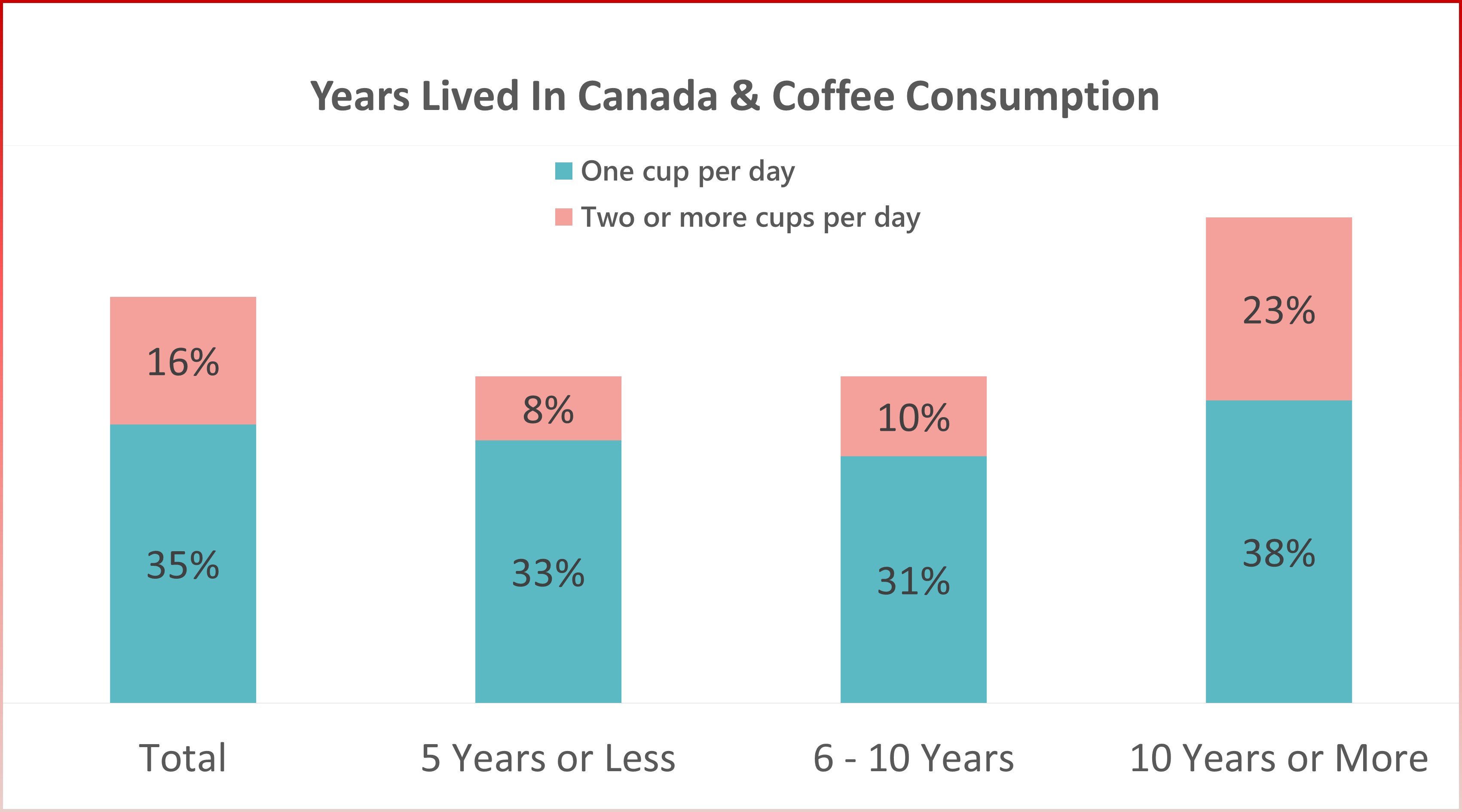
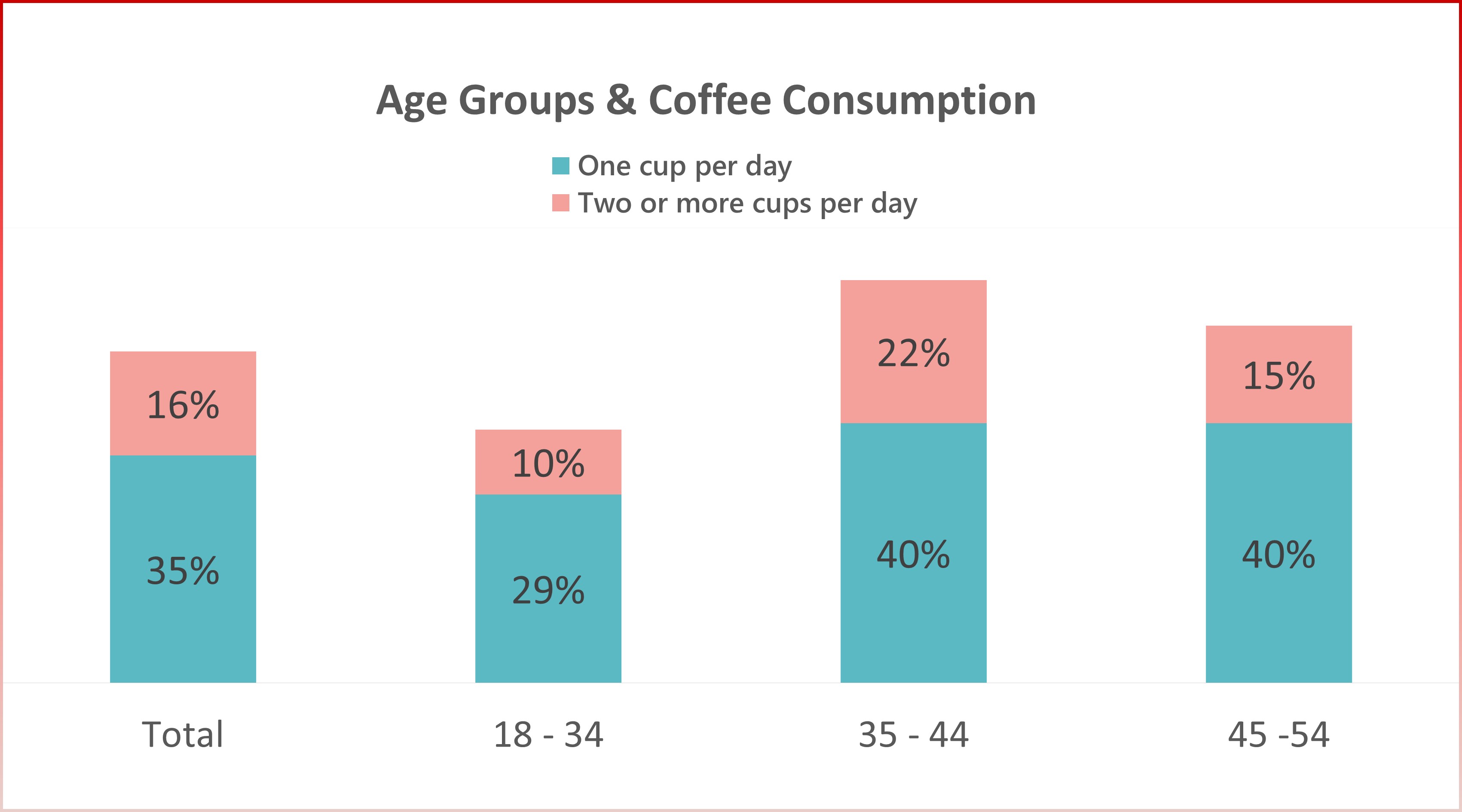
“Because coffee improves energy level and it contains antioxidants, it is good for health.” “I love espresso the most because it is condensed with the main extract! I usually make coffee at home. On average I drink 3-4 cups of coffee per day.”
“I love espresso the most because it is condensed with the main extract! I usually make coffee at home. On average I drink 3-4 cups of coffee per day.”
– A young professional from the financial service industry, male, 32 years old
WHERE DO CHINESE IMMIGRANTS DRINK COFFEE?
One-third of Chinese immigrants in Canada make coffee themselves at home or in office. However, more buy coffee elsewhere. According to the survey, over a half of Chinese immigrants buy coffee from coffee shops or fast-food restaurants. This is not surprising, given Canada has a long and cold winter, and many commuters buy a coffee and put it in the car on their way to work. For home makers, it is common that they meet and catch up with their friends in a coffee shop. According to statistics, there are 3,600 Tim Hortons stores in Canada, a vast country with only a population of less than 36 million. No wonder that Canadians, including Chinese immigrants, love coffee and coffee shops that much.
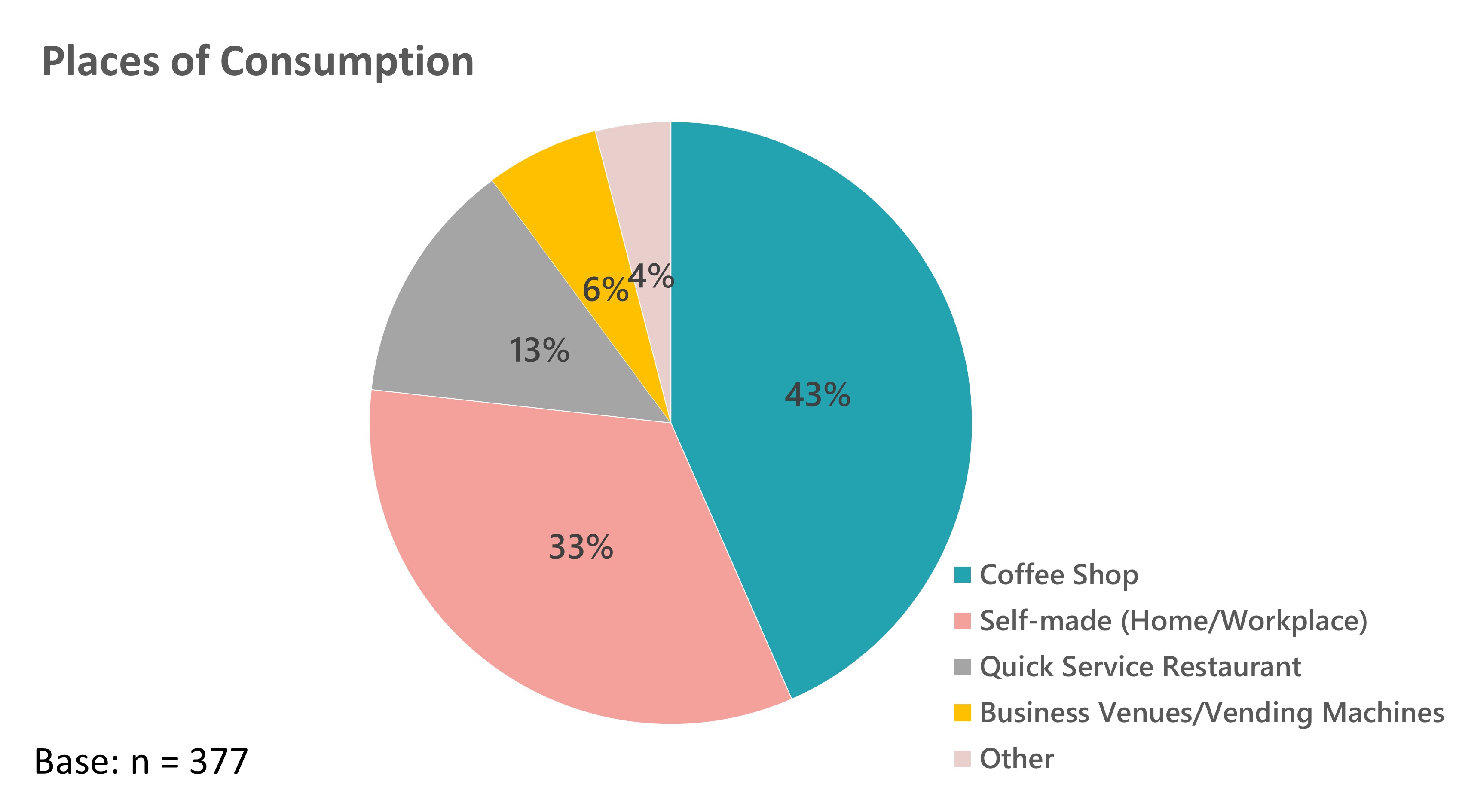
STORE CHINESE IMMIGRANTS IN CANADA LIKE THE MOST?
Almost all Chinese immigrants in Canada are aware of McDonald’s, Starbucks and Tim Hortons. Even Second Cup enjoys 94% awareness level among Chinese immigrants. According to the survey, 82% of the respondents say they visited McDonald’s, 91% visited Starbucks, and 93% visited Tim Hortons in the past year. Obviously, coffee shops and fast-food restaurants serving coffee are popular hangouts among Chinese immigrants. The survey also shows that 60% of respondents visited Tim Hortons, 44% visited Starbucks, and 25% visited McDonald’s multiple times in the past month; however, Second Cup only has 5% frequent loyal customers although it has a 94% awareness. This demonstrates customer loyalty is key to success for coffee shops and fast-food restaurants in an increasingly competitive market.
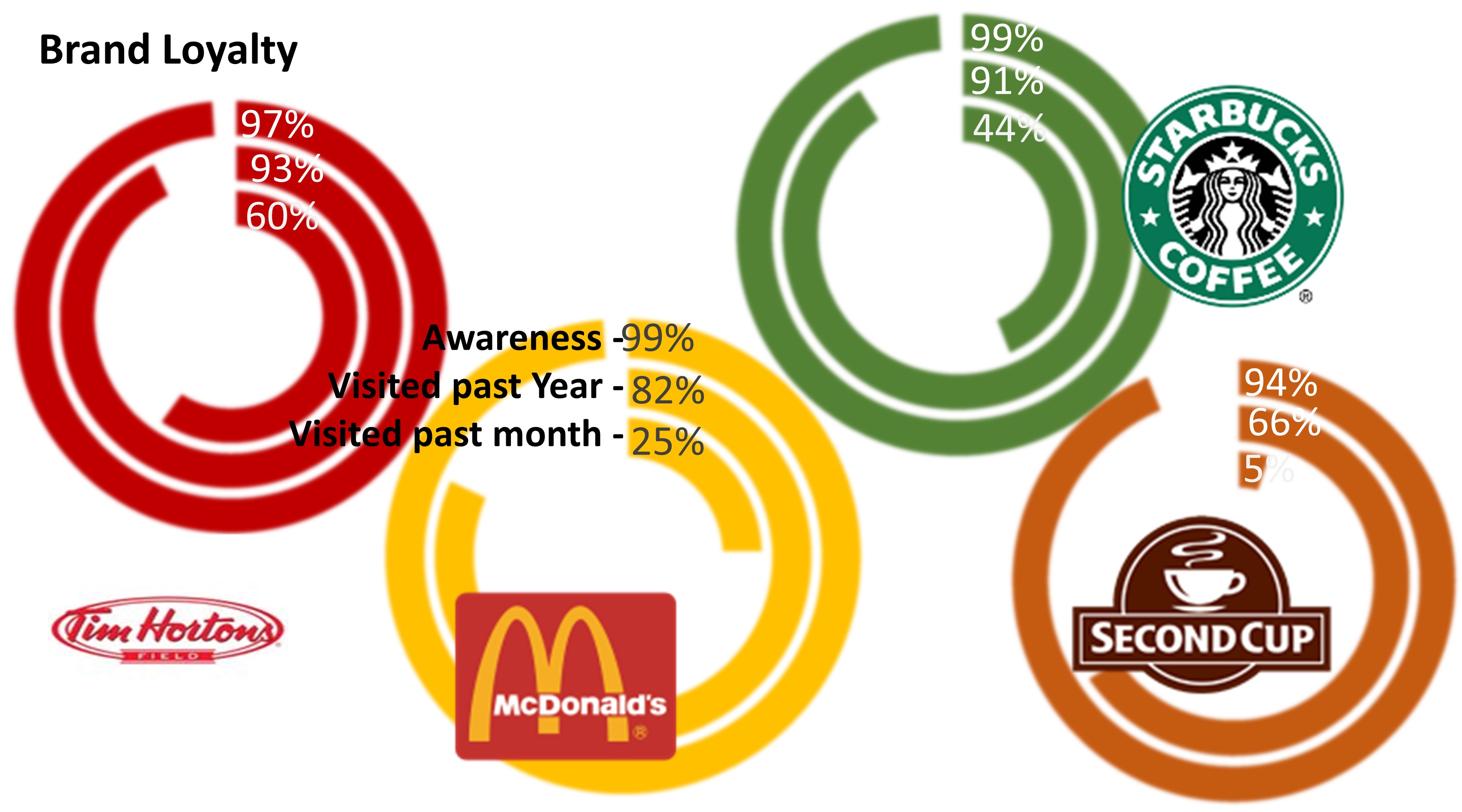
“Tim Hortons is a value-for-money coffee shop. It is down to earth and shows more character than Starbucks.”
– A young professional from the financial service industry, male, 32 years old
“Sometimes I make instant coffee at home, but most of time, I drink coffee in a coffee shop. I like Tim Hortons’ Dark Roast the most, with one sugar and one milk. I also like Starbucks’ Americano. I love the taste of these two types of coffee. With no redundant flavors, they are very pure compared with others.”
– A professional from the education sector, male, 48 years old
TYPE OF HOME-BREWED COFFEE THEY FAVOUR?
Among consumers who brew their coffee at home, drip coffee maker is the popular with 37% users. Single cup coffee maker using pods follows as the 2nd with usage at 29%. Instant coffee is far less popular in Canada than in China.
69% of Chinese immigrants mainly drink freshly brewed coffee, while 32% of survey participants say they mainly drink espresso-styled flavour coffee, such as latte and mocha. Interestingly, female consumers are more in favour of flavoured coffee, while male consumers are more in favor of plain espresso.
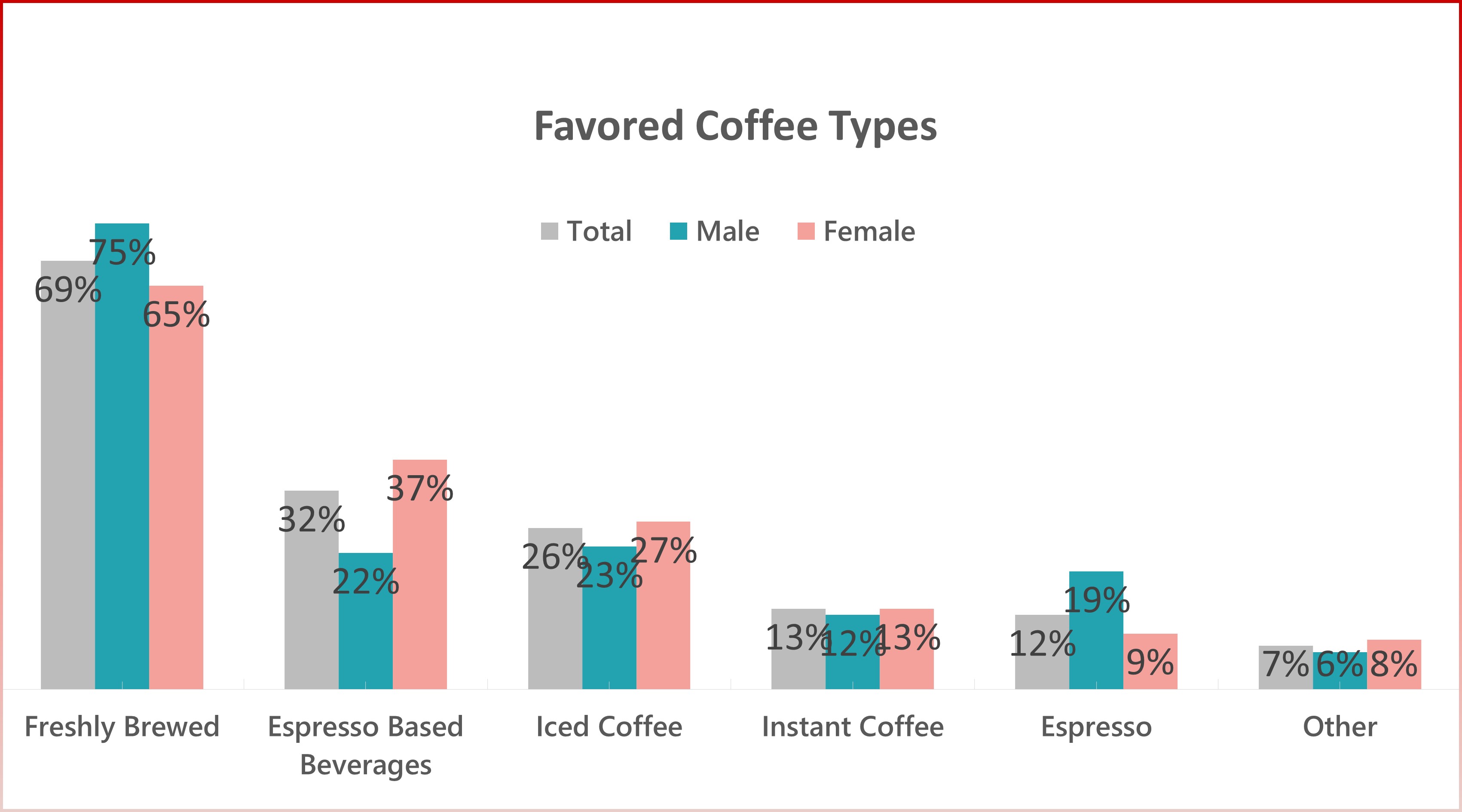
While keeping much of the traditions after they leave the home country to settle overseas, as time goes by, Chinese immigrants have adopted many local eating habits as part of their integration into Canada. Coffee is one of the many examples of such integration. Over a half of Chinese immigrants in Canada have fully accepted coffee. Among those aged 35-44, who drink coffee most frequently, nearly seven in ten fully embrace coffee.
A quarter of all respondents claim that coffee help them relax and keep them cheered up, indicating they are likely to increase their coffee consumption. In the meantime, 27% say they are likely to drink less coffee out of health concerns. Interestingly, Millennials aged 18-34 are the most likely to drink less coffee due to health concern.
Photo: “London Calling” by Thomas Leuthard
Methodology
This survey was sponsored by Chinese Research and Analytics Society (Canada) (CRASC). Data was collected from May 10 to May 18, 2017 via the online survey platform of lediaocha.com. Survey links were distributed among Chinese immigrants in Canada though WeChat Moment and WeChat groups by CRASC members. In total, 377 valid samples were received. Data processing and analysis were conducted by CRASC members.
About Chinese Research & Analytics Society (Canada)
Chinese Research & Analytics Society (Canada) (CRASC) is a not-for-profit professional organization founded by a number of research and analytics professionals of Chinese origin who currently work in the Greater Toronto area. The organization serves as a community for research and analytics professionals originally from China to network, share, learn from one another and develop their career in Canada. CRASC is also committed to bridge the information and insights gap about Canadian Chinese as one of the largest ethnic groups in Canada.
We believe that our organization is best positioned to provide the public, government organizations, media, and businesses in Canada and China with an unbiased view of Canadian Chinese, their lifestyle, values, opinion and their needs.